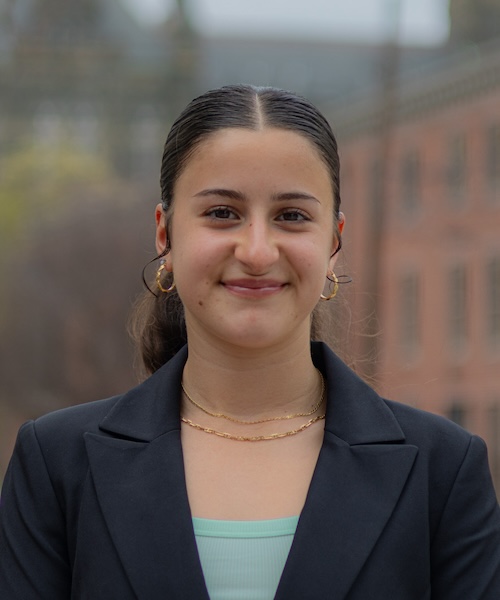Going into our study tour experience in Bogotá, Colombia, I really didn’t know what to expect. I had no idea what the International Associate of Jesuit Universities (IAJU) Assembly would be like, and I wasn’t sure how our group of fellows would mesh together. Nevertheless, I loved being thrown into it and embracing the discomfort of those unknowns. Some of the panels we attended—particularly the ones on student wellbeing—were incredibly engaging. Listening to professors discuss loneliness, the lack of health resources, and the social dynamics of gender roles by region was fascinating. I was genuinely enamored with the variety of stories shaped by their experiences with students and campus life. It felt like a window into the cultures of students like me—receiving a Jesuit education—and how geography plays such a vital role in shaping that experience.
I got to explore this further during the "Speaking Across Conflict" workshop developed by Resetting the Table, which was facilitated by the Berkley Center. I had never so deliberately tried to put myself in someone else's mental and physical perspective in order to truly understand what they were saying. The exercise was somewhat draining, yet eye-opening. I realized that the more I strategically try to understand someone else, the more I learn about myself. I felt especially connected to my peers following the experience, as we laughed through the confusion and misinterpretations of each other’s words. I came to understand that listening is multifaceted and multi-dimensional, which I now see as a core part of genuine connection.
What I cherished most were the causal moments fellowship I shared with my peers. Each meal was filled with intellectual conversations and cultural exchange. Everyone was so inquisitive, always asking thoughtful questions in such a kind and genuine way. Learning about the medical school system in Madagascar or how global citizenship is conceived in the Philippines, was edifying and inspiring.
But perhaps the most special moment of all was our planned gift and culture exchange. It was so moving to see everyone excited to share a small piece of home and to so graciously offer it to the rest of us. That night was filled with laughter, trying new things, storytelling, and true exchange. I felt so connected to the group, and it left the deepest impression on me.
Before the IAJU Global Citizenship Fellows Program, I considered myself a person with an open mind—someone who always made an effort to consider the opinions of others and how lived experience shapes perspective. But engaging with the other fellows revealed that my ability to truly listen and understand was more limited than I realized. For example, speaking with my peers about migration in Latin America—a topic I thought I understood—challenged my assumptions. Hearing their insights as locals exposed me to angles I hadn’t considered before. For example, my peer described the lack of opportunity and the new culture of migration in Guatemala. Even though people may have some access to education and enjoy aspects of daily life, they still choose to leave. This shifted my approach in these topics from centering data and trends to the lived realities and specific systemic inequities that shape migration. When speaking with another peer about refugee crises, they challenged me with new ways of thinking about intervention, how deeply it’s entangled with our economic policies, and how addressing these systems is also part of the fight for refugee rights. These conversations forced me to rethink my frameworks and reflect on the root causes that must be confronted when shaping policy in our globalized world.
Ultimately, it was these conversations with my passionate fellows, now friends, that expanded my worldview. They opened my mind and restored some of my hope for the change and the good that exist in the world.

